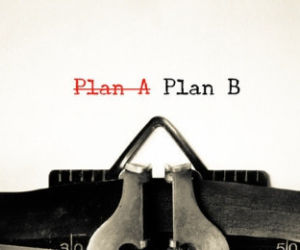| Contents: |
Empathy is about connection
As I mentioned briefly in the introduction, empathy is the thread that binds people together. It’s our ability to put ourselves in the other person’s position. More precisely, it’s being able to feel an appropriate emotion when faced with another person’s emotion and to make the distinction between yourself and the other person. So we can see the idea of the thread that starts with us and extends to others.
You hurt yourself, I understand your pain (because I know it), but I know that I’m not the one who’s really suffering, I don’t feel it physically, but I mentally reconstruct the emotional process. So we create the link while remaining ourselves. This is exactly what empathy is all about.
Empathy is felt from the very first minutes of life because it’s something that’s experienced through the body. By having its own physical sensations, a newborn baby can tell the difference between its own body and its mother’s. Empathy then helps to form connections, but it also needs to be learned and encouraged.
📖 A little etymology note It’s always interesting to look at the etymology and origin of words to better understand them. The Greek root of empathy means to feel from within. In addition, empathy comes from the German word Einfuhlung, which defines the projection of a person into the situation of another person. This word was created by the philosopher Robert Vischer in 1873. He used it to describe an emotion felt towards a work of art. |
The 3 dimensions of empathy
Empathy is complex and develops in 3 phases or dimensions:
- Emotional empathy: the ability to recognize the other person’s emotions
- Cognitive empathy: understanding the reasons why they feel the way they do
- Emotional perspective shift: knowing that you’d feel the same way in the other person’s position.
Empathy, sympathy, and compassion
Empathy works as an emotional response, but it’s different from sympathy or compassion.
>>> A few more tips: How to better manage your emotions on a daily basis to live more serenely?
Sympathy is about having an affinity for someone. Sympathy has an affective nature, we’re in the feeling. When we have sympathy for someone, our mirror neurons are activated. If someone smiles at me, thanks to the mimetic process, I feel this friendly gesture. With empathy, the mirror neurons are activated, in addition to another network of neurons, that of mentalization. This allows us to feel what the other person is feeling, but not to let our own emotions overwhelm us.
- If someone smiles at me, I’m happy, I smile too ➡️ sympathy
- If a friend gets good news, is overwhelmed with joy, I’m happy for her, I’m able to feel her joy, but I’m also able to keep my wits about me and pour her a glass of water, so she can regain hers ➡️ empathy.
Compassion is suffering with the other person and trying to act to reduce their suffering. Compassion is often used in the context of mourning: we suffer with the other person and want to take on their pain. Indeed, compassion is always linked to pain.
What’s the purpose of empathy? Why is it important in our relationships with others?
We may feel alone, but the fact is that we don’t exist alone, we’re always in relationships with others, and this is how we create ourselves and evolve. Empathy, therefore, plays a very important social role. Indeed, on our own, we do not need this function, it only exists to bring us closer to others, but also to:
- harmonize relationships
- get to know others better and get to know ourselves better
- promote acceptance
- open our minds, judge less and understand others better
- give the motivation to help
- show benevolence
Developing empathy can prove to be vital nowadays. Indeed, since the beginning of time, humans have tended to favor their own group. So we more naturally show empathy for our family or loved ones than for others 🥰. Caring for everyone, and showing empathy towards everyone is an option to consider in a time when wars are raging, and we need to preserve our world. 🕊️
How to behave as an empathetic person?
Empathy is a path to benevolence, but it isn’t benevolence itself. Empathy can’t be decreed. It develops naturally as we grow up, but if I’m able to understand other people’s emotions and therefore their needs, I can help them as well as manipulate them.
When empathy hurts
Oh yes, I forgot, empathy isn’t just about helping and generosity. It can also be used for its own purposes, and even be the secret weapon of the most sadistic among us. We can easily imagine using our empathy to inflict suffering on those around us. In fact, it’s only through a sense of morality and education that our empathy can evolve.
Can we develop positive empathy?
We can be more empathetic by taking a step back from ourselves. We need to learn to let go of what’s not worthwhile, of some of our beliefs, of some of the judgments we make... At another time, we can try to develop more positive aspects: cooperation, active listening, laughter, benevolence, love, etc.
There’s also a lot of work to be done on desire, envy, and jealousy. These notions often lead to rivalry. Wisdom would like us to continue to desire what we already have rather than to desire what others have. Let’s not lie, wisdom isn’t given to everyone, and I’m the first to admit it. That said, we can try, because doing without envy and jealousy makes us happier and therefore more empathetic. Being more empathetic brings us closer to those we love and don’t know yet, and that makes us happy, too!
Editor’s note: A fine quality to be worked onEmpathy is a fine quality to work on. If you think you’ve got some work to do on this point, it may be interesting to approach a coach to discuss this topic together. Over the course of the sessions, you’ll implement new habits that will allow you to develop your empathy and thus improve your relationships. Don’t hesitate to make an appointment. 🤗 Understanding yourself, accepting yourself, being happy... It’s here and now! #BornToBeMe |
Be sure to check out these articles too;



























Did you like this article?
Want to know more 🤔 ?
Write directly to the authorKatieM. !
Ask Katie a question
Want to share your thoughts? Leave a comment